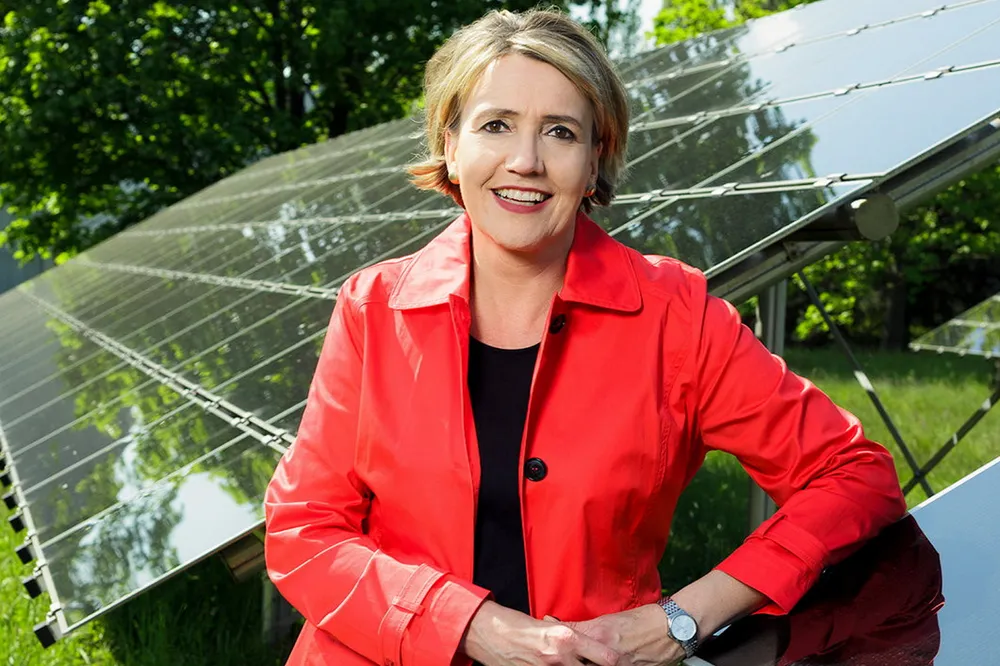German renewables sector urges next government to create more flexible power market
Renewables federation BEE says outgoing centre-left administration made significant progress in energy transition but government after February snap elections must shift to capacity-based support

While Germany’s outgoing government has made significant progress in the country’s Energiewende – its transition from nuclear and fossil to renewable power – critical reforms remain unfinished and must be tackled by the next administration, the Renewable Energy Federation (BEE) said in an outlook for 2025.
Achievements include ending dependence on Russian natural gas, completing the nuclear phase-out last year, accelerating the solar and wind power expansion, expanding the energy grid and laying the groundwork for a heating transition in buildings and networks, BEE president Simone Peter said.
But a pressing task for the next government after snap elections on February 23, 2025, is to unlock flexibility and reform the electricity market.
“With the continued expansion of fluctuating sources like wind and solar energy through the reduction of market barriers, faster approvals, and more available land, producer, storage, and consumer flexibility is becoming increasingly important to make the energy system efficient and affordable,” Peter said.
“What is needed is nothing less than a flexibility strategy that incentivises controllable performance at all levels, rewards system-friendly behaviour, and removes obstacles for storage and sector coupling.”
Transitioning from time-based support under Germany’s Renewable Energies Act (EEG) to capacity-based renewable energy subsidies could stabilise market values and curb negative electricity prices without slowing the pace of renewable energy growth, the BEE said. Allowing multiple renewable producers and storage facilities to connect at the same grid node would also optimise resource use.
On the consumer side, dynamic pricing, smart meter rollouts, and variable grid charges could enhance system efficiency while promoting the uptake of heat pumps and electric vehicles.
Renewable energy now is a cornerstone of Germany’s energy system, which must be reflected in power plant strategies, the BEE said. Peter highlighted the potential for up to 38GW of additional renewable capacity by 2030 and as much as 100GW by 2045, driven by decentralised and low-cost solutions.
Flexible biogas plants alone could provide up to 24GW of capacity, the federation claimed, adding that more hydropower, battery storage, geothermal energy, and green combined heat and power (CHP) facilities could further reduce reliance on fossil fuels.
Immediate action by the next government could significantly expand renewable capacity, dwarfing the output of current gas power plant plans, Peter added.
Sustaining heating transition
The BEE singled out ensuring continuity in the heating sector as another key priority. Legislative frameworks and funding mechanisms developed during the current term must be carried forward seamlessly to prevent stagnation in the heating transition, it said.
Led by Green Party energy minister Robert Habeck, the outgoing government had pushed through a heating law that foresees phasing out fossil-based heating systems and replace them by heat-pumps or other sustainable heating systems. But the legislation came under heavy attack from populist media and the right-wing opposition as an example of the government overstepping its boundaries and meddling excessively in people’s private heating cellars.
The legislation ultimately passed in a watered-down version, but contributed to a decline in voting intentions for the Greens, and to a lesser extent also Chancellor Olaf Scholz’s Social Democrats (SPD).
The BEE also stressed the need for decarbonisation of industry and transport, demanding urgent action to revive sluggish sales of electric vehicles, and a greater use of biofuels and e-fuels in areas that are hard to electrify.
Despite internal divisions and external challenges, the outgoing coalition government achieved critical milestones in Germany’s energy transition, the BEE said, but stressed that much remains to be done.
“The next government has the opportunity to build on this foundation and address unmet goals,” said Peter. “As an industry, we are ready to support this effort. The future demands reliability and ambition.”
(Copyright)